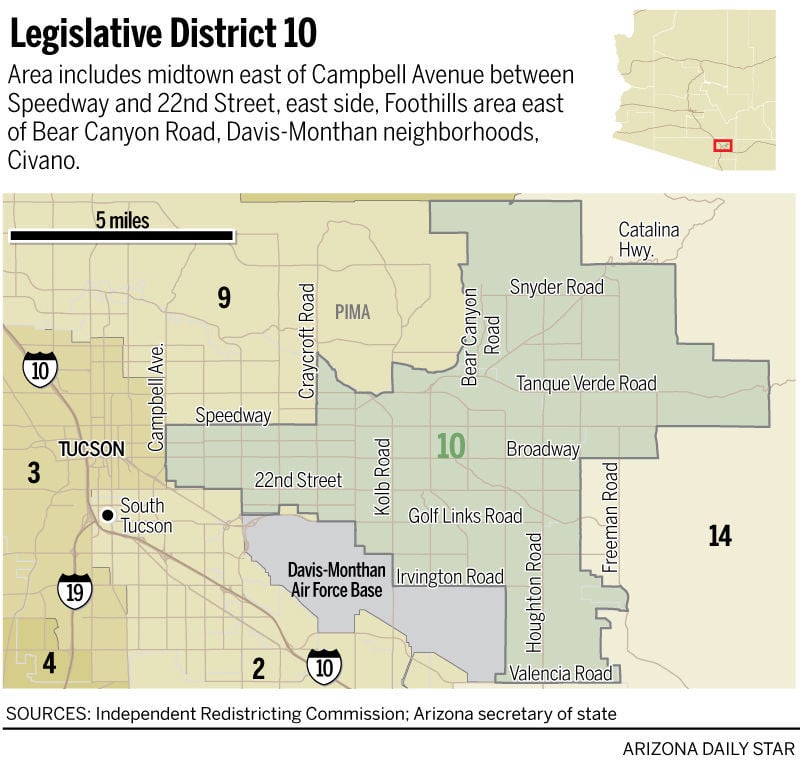One incumbent and two challengers are vying for two seats in the Arizona House of Representatives for Legislative District 10.
Democrat Stefanie Mach is running for a third term, and fellow party member Kirsten Engel is new to politics, after deciding to enter the race last fall when she learned that Democrat Bruce Wheeler would be stepping down at the end of the term.
Republican Todd Clodfelter, a clean elections candidate, is making a third effort to win a seat in the state house, having lost in two previous attempts.
Even though Clodfelter is running under the clean elections system, he raised the most money during the June 1 to Aug. 18 campaign finance period, with nearly $18,000 coming in. Engel raised $15,000, and Mach brought in $14,000.
All the candidates say they are prepared to work with members outside of their party to accomplish what’s best for the state and that ultimately each party wants to achieve the same goals.
“What we all want is very similar, it’s just the means to get there that are different,” Mach said.
She talked about the issue of Medicaid expansion, which came before the legislature during her first year in office, citing her experience navigating the lengthy process, which she referred to as a delicate situation.
“No one knew internally if it was going to work out until it did, and we all worked together to make sure that the 300,000 people who were vulnerable had access,” Mach said.
Clodfelter said he has belonged to organizations his whole life, all of which have been nonpartisan. He cited Boy Scouts, Rotary Club and his church as a few examples.
“We accomplished a lot with those organizations, because of all of the different ideas people had,” he said. “It’s just a matter of working together.”
Engel cited her experience as an attorney, saying that when she worked as an assistant attorney general in Massachusetts, she successfully negotiated an agreement with a large paint manufacturer to warn consumers about the hazards of lead-based paint exposure.
“We were the first state to do that, and we became a model for states across the country,” she said, adding that at times the negotiations were tense.
CANDIDATES’ PRIORITIES
All of the candidates agree education is the most pressing issue facing the state, and Proposition 123 was not the right solution.
“I don’t believe it was the only choice, but it was the only choice we had before us at the time,” Mach said, adding that she voted against it when it passed through the legislature.
Each of the candidates also mentioned the state’s infrastructure as a priority. They differed on what additional problems Arizona needs to “fix,” although each agreed that both a short- and long-term plan would be necessary to achieve those goals financially.
Mach wants to take on prison reform, saying the largest housing unit in the state for mentally ill people is the state prison system. She said it would cost less for the state to treat substance abuse and mental health issues than to put people in prison.
A former attorney for the Environmental Protection Agency, Engel has included the environment on her list of priorities.
“People are concerned about the water issue,” she said. “They feel like Tucson has been a leader in efforts to protect the environment, but now the state needs to follow its lead.”
Clodfelter talked about mending the economy and the need for more jobs, but said it wouldn’t be easy to repair any of the problems the state currently has.
“You can’t fix just one aspect of these issues,” he said. “If you change one piece of the design, you have to plan for the rest.”





